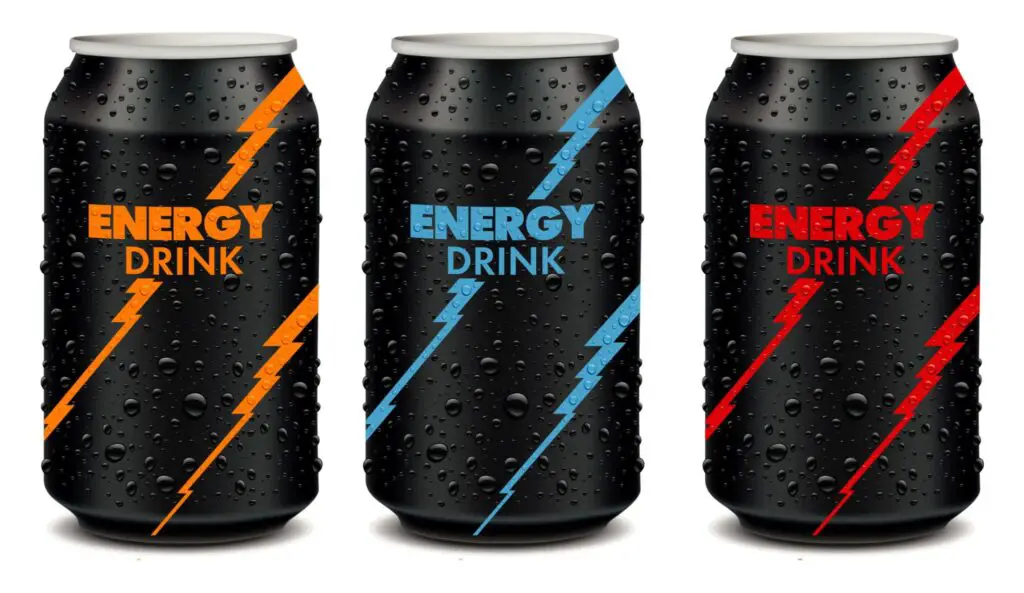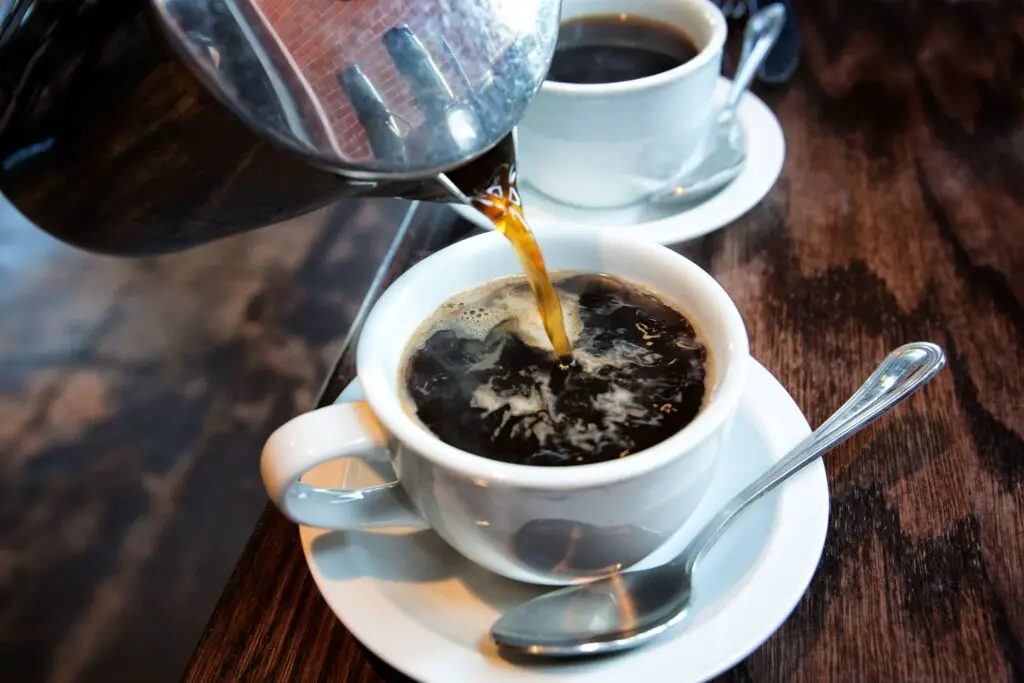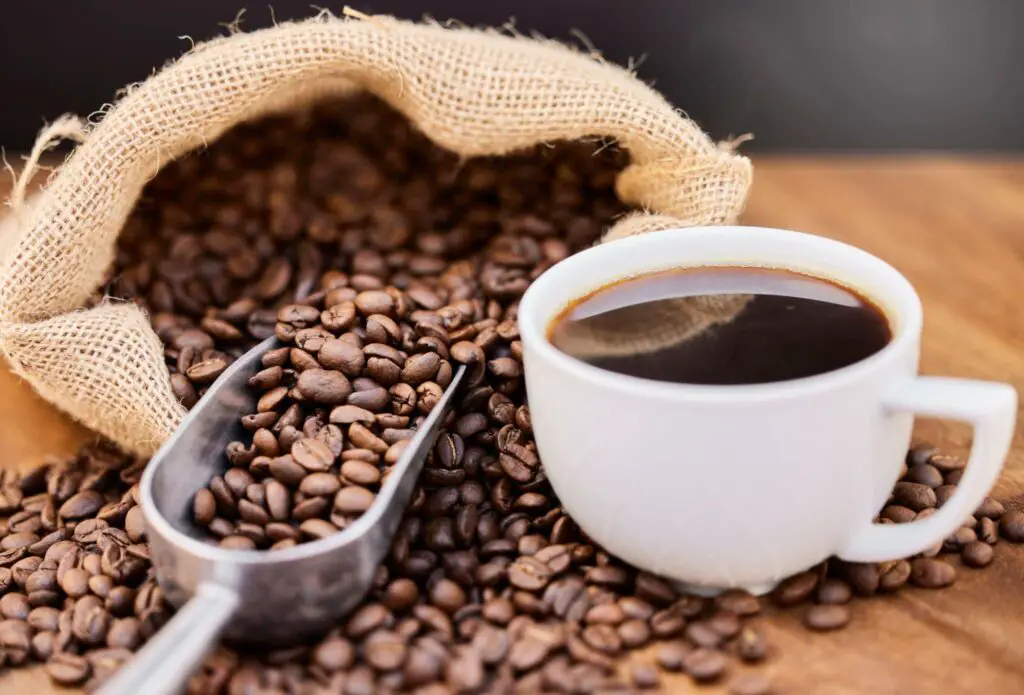Energy drinks and coffee are the two most popular beverages for quick energy boosts. While both of these drinks can help you stay alert and focused throughout the day, they work in very different ways. So, which one is better for an energy boost?
This blog post will explore the key differences between energy drinks vs. coffee regarding their energy-boosting properties. Whether you’re a coffee addict or an energy drink fan, keep reading to find out which drink is best for your productivity and overall health!
Introduction to Energy Drinks and Coffee

Energy drinks have become popular among many individuals due to their potential to provide a quick energy boost. These drinks typically contain caffeine, sugar, and various other compounds that may support mental and physical performance. Caffeine is also found naturally in many plants, such as tea, coffee, and cocoa.
Unlike energy drinks, coffee has been consumed for centuries and remains a popular choice for many. A standard cup of coffee contains approximately 100 mg of caffeine. While energy drinks usually offer between 70 and 240 mg of caffeine per serving.
Consuming these products in moderation is essential, as overdosing is a potential risk when consumed excessively.
The Battle of Energy Drinks Vs. Coffee
The world is divided into two camps – those who love energy drinks and those who swear by coffee. Both have their own benefits and drawbacks. While coffee is known for its natural, earthy taste and caffeine that gives a steady and reliable energy boost, energy drinks provide a quick, refreshing jolt of energy that is perfect for when one is on the go. However, a recent study shows that drinking energy drinks can harm blood pressure and heart function, while coffee does not.
It is also a fact that most energy drinks contain high sugar, which is not good for overall health. On the other hand, coffee has a variety of substitutes, such as nuts and herbs, which can provide the same energy boost without harmful side effects.
Ultimately, the choice between energy drinks and coffee comes down to individual preference, with the understanding that coffee is the healthier choice.
Energy Drinks: The Good, the Bad, and The Ugly
Energy drinks have become increasingly popular in recent years, with many people turning to them for a quick boost in mental clarity and physical energy. The good news is that research shows energy drinks can improve brain function, including memory, concentration, and reaction time while reducing mental fatigue. Plus, with caffeine and B vitamins among the key ingredients, they can be a great way to get a quick hit of energy when needed.
However, it’s worth noting that excessive consumption of energy drinks can lead to health problems, including increased heart rate, anxiety, insomnia, and even digestive disorders. Consuming these drinks in moderation and reading labels carefully is essential to ensure safe consumption.
Overall, while energy drinks can be a helpful tool for an occasional energy boost, it’s essential to use them wisely and cautiously.
Coffee: The Classic Energy Source

Coffee has been considered a classic source of energy for many years. People have turned to this beverage to fight tiredness and sleepiness. Even though some believe that coffee provides energy, the reality is that caffeine only stimulates combustion reserves. Nevertheless, coffee beans are known for their vibrant and complex flavors, making them a favorite among coffee connoisseurs. The Oromo, an Ethiopian ethnic group, was the first to note the energy-increasing effect of the local coffee tree.
Hunter-gatherers from this tribe consumed it. Coffee is a versatile drink that can be adapted to different tastes and preferences. Also, it is available in different forms, from classic instant coffee to freeze-dried instant coffee mix. A classic blend of coffee beans is carefully roasted to enhance flavor and aroma, making it suitable for making a variety of delicious beverages. The FCUS Stovetop Espresso Coffee Maker Moka Pot is a classic Italian coffee maker that makes four cups of strong coffee for those who prefer a richer taste.
Overall, coffee remains a classic energy source that people enjoy for its taste and stimulating effects.
How do Energy Drinks and Coffee Affect the Body Differently?
People turn to energy drinks and coffee as popular beverages for an energy boost. However, they affect the body differently. When a person consumes an energy drink, the caffeine enters their bloodstream within 10 minutes, increasing their heart rate. Consuming large amounts of caffeine can lead to serious cardiovascular issues such as increased blood pressure and heart rate.
Some energy drinks also contain high levels of sugar, which can affect a person’s overall health. On the other hand, coffee also contains caffeine, but the effects on the body are not as dramatic as energy drinks. The caffeine in coffee takes about 30 minutes to take effect and does not lead to significant increases in heart rate or blood pressure.
While both energy drinks and coffee can provide an energy boost, it is important to be mindful of the potential negative effects on the body and to consume them in moderation.
The Ingredients of Energy Drinks and Coffee and Their Impact on Energy Levels
Energy drinks and coffee are popular beverages that people consume to boost their energy levels. Both have unique ingredients that impact the body in different ways. Energy drinks contain high amounts of caffeine, sugar, and B vitamins that provide a fast boost of energy.
On the other hand, coffee contains small amounts of caffeine but is full of antioxidants that promote long-term energy levels. A cup of coffee contains at most 80 mg of caffeine, while energy drinks hold up to 320 mg of caffeine, four times the amount found in coffee. However, caffeine affects people differently, and moderate consumption is advised.
While both options have their advantages, people should choose what works best for their bodies to maintain their energy levels throughout the day.
The Caffeine Content in Energy Drinks vs. Coffee
Regarding caffeine, it’s not just coffee that packs a punch. Energy drinks have become increasingly popular among those seeking a quick energy boost. However, energy drinks’ caffeine content is much higher than coffee’s. A cup of coffee usually contains around 95 milligrams of caffeine, while a 3-ounce cup of energy drink can provide up to 77 milligrams.
It’s important to note that caffeine in coffee or energy drinks can vary depending on factors like brewing and processing time. Coffee and energy drinks can provide a much-needed energy boost despite the caffeine content difference.
But it’s important to consume them in moderation and be mindful of energy drinks’ sugar and calorie content.
The Duration of Energy Boosts from Energy Drinks vs. Coffee
Energy drinks and coffee are two popular beverages consumed by people worldwide who need a quick energy boost to get through the day. A new study has shown that drinking energy drinks can lead to potentially harmful changes in blood pressure and heart function, which outweigh the effects of caffeine.
However, natural sources of caffeine, such as coffee, can boost energy without these negative effects. While the effects of energy drinks are short-lived, lasting for about 4-6 hours, coffee provides longer-lasting effects that can last up to 8 hours.
Therefore, coffee may be a safer and more effective choice for those looking for a quick energy boost than energy drinks.
The Pros and Cons of Energy Drinks and Coffee for Energy Boosting
Energy drinks and coffee are two popular options for boosting energy levels when feeling tired or fatigued. Both have pros and cons, and it is important to consider them before deciding. Energy drinks can improve brain function, increase alertness and mental perception and adjust mood. However, they can also potentially harm blood pressure and heart function, and they often contain high amounts of caffeine, which can cause damage to the body.
On the other hand, coffee contains natural caffeine, and several health benefits are associated with it, such as reducing the risk of type 2 diabetes and liver disease. Nevertheless, the excessive intake of coffee can cause jitteriness, anxiety, and insomnia. Therefore, nutrition experts advise that caffeine-free drinks are a better option for boosting energy levels healthily and naturally.
Energy Drinks Pros:
- Provides an energy boost
- Improves mood and attitude
- Enhances workout performance
- Zero calorie options available
Energy Drinks Cons:
- Can become addictive
- May cause health issues, including cardiovascular problems
- Has high sugar content which can cause weight gain and sugar highs
- Risk of abuse leading to other substance abuse
Coffee Pros:
- Provides an energy boost
- Improves focus and concentration
- Has antioxidants that benefit health
- Low calorie option when consumed without sugar or cream
Coffee Cons:
- Can cause dependence and withdrawal symptoms
- May cause digestive issues such as heartburn and acid reflux
- Has potential negative effects on mental health
- Risk of overconsumption and caffeine overdose
Read more:
- Mastering The Art Of Making A Perfect Cappuccino Vs. Coffee
- Flat White Vs. Latte: Which One Should You Order?
- Breaking Down the Top Espresso Machines: Breville vs. De Longhi
The Potential Negative Effects of Consuming Too Much Caffeine from Energy Drinks or Coffee

Consuming caffeine in moderation is generally safe, but consuming too much can have negative effects. Energy drinks and coffee are two common sources of caffeine consumed in large quantities. While they may provide:
- Temporary energy boosts and mental alertness.
- Drinking too much caffeine can cause restlessness.
- Shakiness.
- Increased urination.
Long-term effects of consuming high levels of caffeine may also include anxiety, insomnia, gastrointestinal upset, muscle twitching, and periods of inexhaustibility.
Caffeine withdrawal can also lead to headaches, marked fatigue, anxiety, tremors, and irritability. Moreover, energy drinks contain other stimulants like guarana, taurine, and L-carnitine that can cause further negative effects on the body. Larger doses of caffeine can cause headaches, anxiety, and heart palpitations. It is essential to limit caffeine intake to no more than 400mg a day or four cups of coffee to avoid adverse effects in the long run.
Ultimately, consuming caffeine in moderation is crucial to prevent unwanted side effects from energy drinks and coffee alike.
Factors to Consider when Choosing Between Energy Drinks and Coffee
- Caffeine Content: Energy drinks typically have higher caffeine levels than coffee, but the amount may vary depending on the brand and size. Remember that caffeine can cause jitters, anxiety, and other unwanted effects in large amounts.
- Nutritional Value: Energy drinks contain sugar, preservatives, additives, and artificial sweeteners. On the other hand, coffee is a low-calorie beverage with beneficial antioxidants and micronutrients.
- Hydration Needs: Plain water is the best hydrating beverage for most people, but sports and energy drinks are marketed to those who engage in strenuous exercise. However, if consumed in large amounts, coffee can also affect your hydration level.
- Physical Endurance: Energy drinks are marketed as a way to improve physical endurance and boost reaction time. While coffee can also enhance alertness and improve focus, it may have different performance-enhancing benefits.
- Health Concerns: Consuming excessive amounts of caffeine and sugar can have negative health consequences, especially for those who are sensitive to these substances. For this reason, energy drinks and coffee are best consumed in moderation.
- Personal Preference: Ultimately, the choice between energy drinks and coffee comes down to personal preference. Some people may prefer the taste and convenience of energy drinks, while others may enjoy the ritual and aroma of a freshly brewed cup of coffee.
- Cost: Energy drinks and specialty coffee beverages can be expensive, especially if consumed regularly. Consider the cost and affordability of each option when choosing between the two.
- Scalability: Coffee is a widely available and scalable beverage, meaning that it can be customized to suit individual taste preferences and consumed in various settings. Energy drinks are often packaged in single-serving cans, which may need to be more convenient and scalable.
In conclusion, choosing between energy drinks and coffee involves weighing several factors, including caffeine content, nutritional value, hydration needs, physical endurance, health concerns, personal preference, cost, and scalability. Regardless of your choice, remember to consume them in moderation and be mindful of potential negative effects.
FAQ
Q: Are energy drinks better than coffee for boosting energy levels?
A: There is no solid evidence to support the claim that energy drinks are safer than coffee when it comes to boosting energy levels. Energy drinks and coffee contain caffeine, a stimulant that enhances brain function and increases alertness and focus. However, the amount of caffeine varies from one product to another, and some energy drinks may contain more caffeine than a cup of coffee.
Q: Is natural caffeine better than synthetic caffeine?
A: Natural caffeine is found in coffee, tea, and chocolate, while synthetic caffeine is what is found in most energy drinks. No clear evidence suggests that one is better than the other. However, it is worth noting that natural caffeine is found in significant quantities in many foodstuffs, while synthetic caffeine is usually only found in energy drinks.
Q: Are energy drinks healthy?
A: Energy drinks are not necessarily healthy or unhealthy. Most energy drinks contain large amounts of caffeine and other stimulant compounds, which can boost energy levels in the short term, but may have adverse health effects if consumed in excessive amounts. Furthermore, some energy drinks may contain artificial sweeteners and other additives with negative health effects.
Q: How does caffeine affect the human body?
A: Caffeine is a stimulant that affects the central nervous system, enhancing brain function and increasing alertness and focus. In moderate quantities, caffeine may also have other health benefits, such as reducing the risk of type 2 diabetes and liver disease. However, excessive caffeine consumption may cause negative side effects such as anxiety, insomnia, and increased heart rate.
Q: Are there any alternatives to caffeine for boosting energy?
A: Yes, there are several alternatives to caffeine for boosting energy levels, such as exercise, a healthy diet, and getting enough sleep. Additionally, several herbal supplements, such as ashwagandha, maca root, and Rhodiola rosea, are also believed to boost energy levels naturally. However, it is always best to consult with a healthcare professional before trying any new supplement or exercise regimen.
Conclusion: Which Is Better for Energy Boosting – Energy Drinks or Coffee?
In conclusion, the debate over energy drinks vs. coffee will continue to rage. It’s clear that both options provide a boost, but the key is to understand what works best for your body and lifestyle. Whether it’s caffeine or other ingredients found in energy drinks, consuming these products in moderation is important. We hope this article has provided helpful insights to help you make informed decisions about energizing your body. As always, we’d love to hear your thoughts and experiences – feel free to leave a comment below!
References
- https://www.ncbi.nlm.nih.gov/pmc/articles/PMC4892225/
- https://news.cuanschutz.edu/news-stories/energy-drink-or-coffee-this-nutritional-scientist-would-pick-the-java

James Robinson loves coffee and blogging all about coffee. His blog is full of informative posts about the best ways to enjoy coffee and the many different types of coffee out there. He also shares recipes for delicious coffee-based dishes, and his followers can always count on him to offer tips on how to improve their coffee-making skills.
